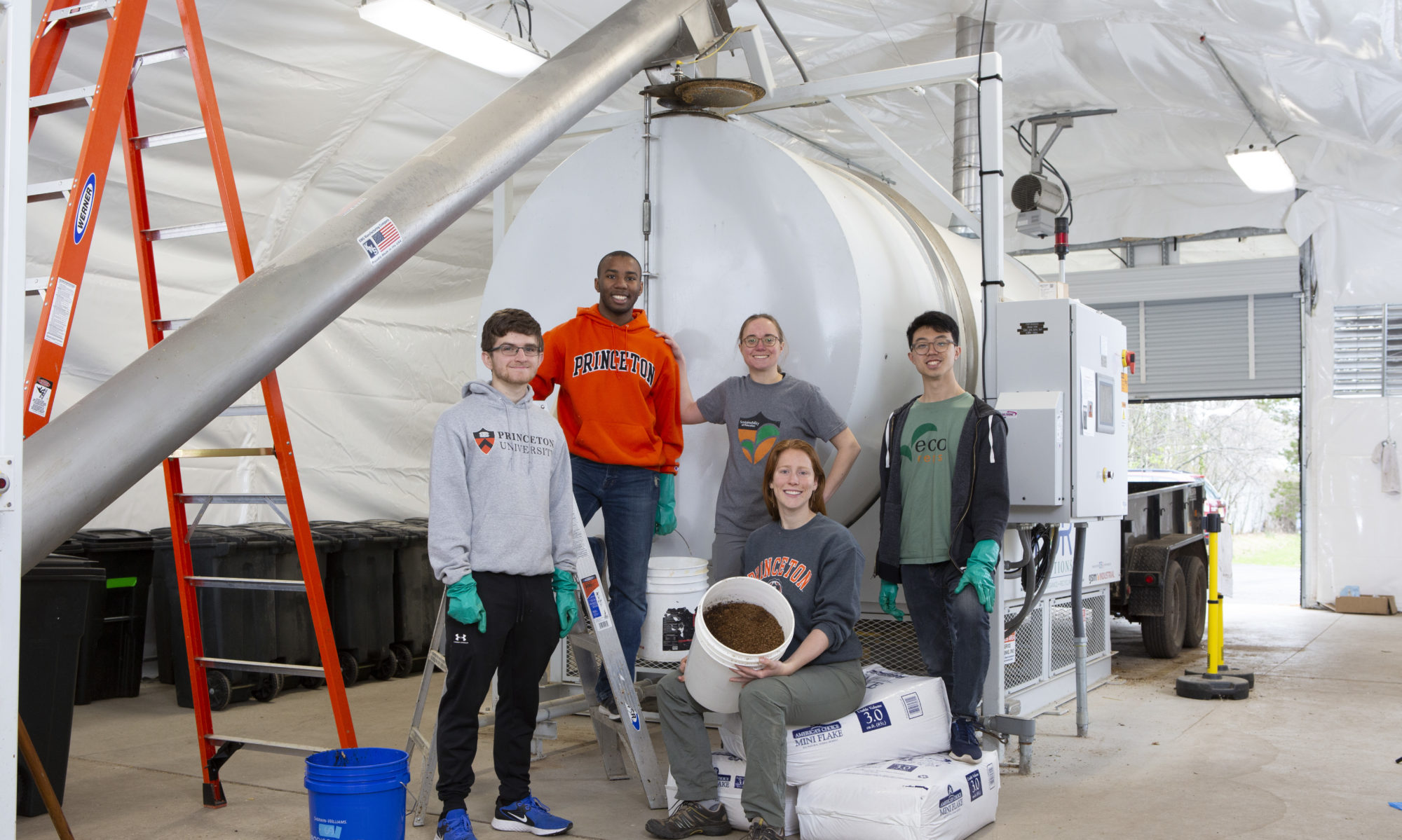Videos
August 2020: Lisa Nicolaison and Gina Talt of Princeton University’s Office of Sustainability present on their evolving experience with event composting. Attendees also discussed challenges related to event composting and shared tips for how to host less-waste and zero-waste events.
April 2020: Follow the journey of campus food scraps as they travel from kitchens in Frist Campus Center to the University’s onsite S.C.R.A.P. Lab for conversion into compost that is used to support plant growth and health on campus.
May 2019: Audio-journalism class project by Angela Mao ’19 that captures a sound journey of food scraps to compost*
*Clarification Notes:
- The term “compost” is sometimes referred in the piece as the uneaten food that is collected in the dining venues. This is a common misinterpretation of the word. Compost is what is produced after the uneaten food and a carbon source undergo aerobic decomposition.
- The correct identification of the processing capacity of the FOR Solutions Model 1000 Composting System is “up to 5,000 lbs. of food per week,” rather than “5,000 lbs. at a time.”
March 2019: Announcement of the project name change
Videos from NJ.com of the January 8th, 2019 official ribbon-cutting ceremony
Video by the Office of Sustainability’s Jared Flesher detailing the journey from food scraps to compost
Check out Jared Flesher’s video from one of the first loadings of food scraps
Learn more about FOR Solution’s innovative composting technology from founder, Dr. Nick Smith-Sebasto. Video by Jared Flesher.
